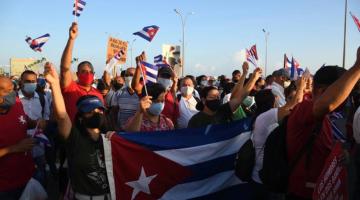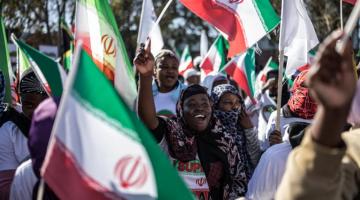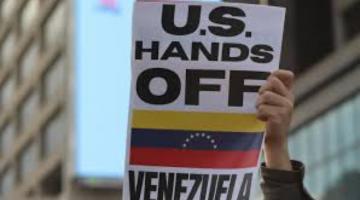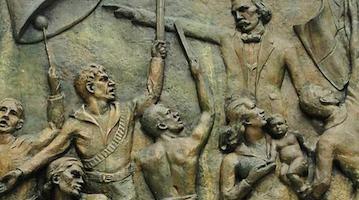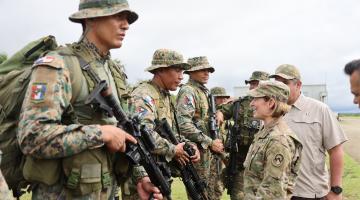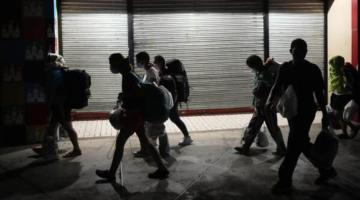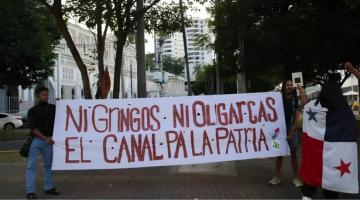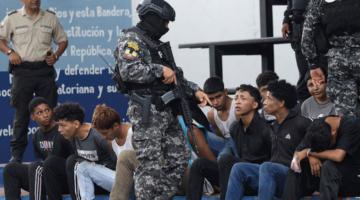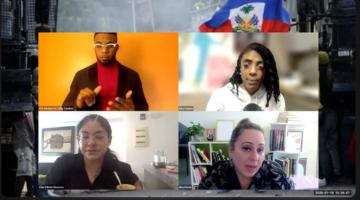U.S. influence over Panama has steadily increased over the years due to the active pressure from instruments like SOUTHCOM. The Mulino government surrenders national sovereignty while suppressing domestic dissent.
“We are paying a monthly fee to Republican party lobbyists. In December, they were saying on CNN that they had already invaded Panama and could do it again. The Panamanian state is funding its own invasion.” Panamanian student organizer Ahmed X with student group Juventudes Revolucionarias, said in an interview after protests escalated on February 1st.
Ahmed, like many Panamanians, are increasingly concerned about Panama’s president José Raúl Mulino’s ability to defend the country’s sovereignty against U.S. interests.
Since the beginning of Trump's presidency U.S. colonial ambitions in Panama have escalated dramatically, the republican party lobby in question is the BGR Group, a lobbying and communications firm that president Mulino hired to assist Panama with navigating current U.S. relations.
Although the BGR Group defines themselves as “bipartisan”, advisors working with the group on Panama include David Orban, who is an outspoken Trump ally and past advisor, former BlackRock VP Maya Seiden, and Lester Munson, a long term republican who served as deputy assistant administrator at the U.S. Agency for International Development during the George W. Bush administration.
At the same time, this past February, SOUTHCOM met with Panama’s Minister of Security Frank Alexis Abrego Mendoza, who was educated at the School of the Americas and founder of the Panamanian border patrol agency, SENAFRONT, as well as Panama Canal Administrator, Dr. Ricaurte Vásquez Morales.
After SOUTHCOM's visit, the U.S. military command has released a statement calling Panama “one of the United States’ most important strategic allies and remains one of its strongest partners in the region.”. They also announced the signing of the "Cyber Cooperation Arrangement" between SOUTHCOM and Panama, strengthening U.S. influence over information sharing and cyber and maritime security of the Panama Canal.
Since the SOUTHCOM visit, Panama has since a changed in their neutrality position as they began to militarize their National Air Service with combat aircrafts they claim for monitoring of illegal fishing and drug trafficking, although the U.S. has claimed cocoa production in the Darien region to be eradicated.
U.S. takeover of the Panama canal also comes in the form of neoliberal investment deal as Hong Kong based multinational corporation, CK Hutchison Holding sold $22.8 billion in shares to BlackRock resulting in the investment firm acquiring two ports along the Panama Canal, Balboa and Cristobal.
Trump claimed this move as a win for the United States mission to take over the Panama Canal, stating in front of Congress, "My administration will be reclaiming the Panama Canal, and we've already started doing it,".
Panamanians have since taken to the streets, angered by the complacency of president Mulino. Amhed states, “The protest was mainly about the sovereignty of the canal. It was demanding respect for sovereignty, rejecting Donald Trump's statements, rejecting Marco Rubio's visit, but also demanding the Panamanian government authorities to stand firm on the issue.”
Labor unions, student groups, and concerned Panamanians alike that have come out to protest have been repressed and deemed “the radical anarchist left” by the current Panamanian government. Mulino has responded to calls for the defence of Panamanian sovereignty with violent crackdowns and repression tacks not seen in Panama since the 1980s. Amed describes, “It's a procedure that in Panama they call "empadronamiento." Basically, the police come to your house and ask your neighbors if you live there. Once they have confirmation, they have enough information to conduct a raid, which basically means coming to your house and searching it.”.
This is happening at the same time that President Mulino is also being heavily criticized for his push for social security reforms. One of the main private corporations pushing for these reforms is the National Council of Private Enterprises or CONEP which holds significant influence in forming Panama's economic policies. Mulino is a former vice president of CONEP.
Panama’s seemingly neutral reaction to U.S. escalation is a reflection of greater divisions within the Latin American bloc as countries such as El Salvador and Argentina are in full support of Trump policy while the presidents of Mexico and Colombia attempt to reject increased U.S. dominance.
Ahmed X states, “Claudia Sheinbaum, and Gustavo Petro have shown themselves to be quite firm, with firm stances without necessarily falling into something that might seem warmongering or conflictive, but they have shown firm diplomacy regarding their sovereignty and the sovereignty of Latin America.”
Krys Cerisier is a Haitian Panamanian journalist based out of the Bronx. Cerisier works in international reporting and covers U.S. militarism and climate change in Latin America and Caribbean. Cerisier can be contacted at krystalcerisier@gmail.com.


